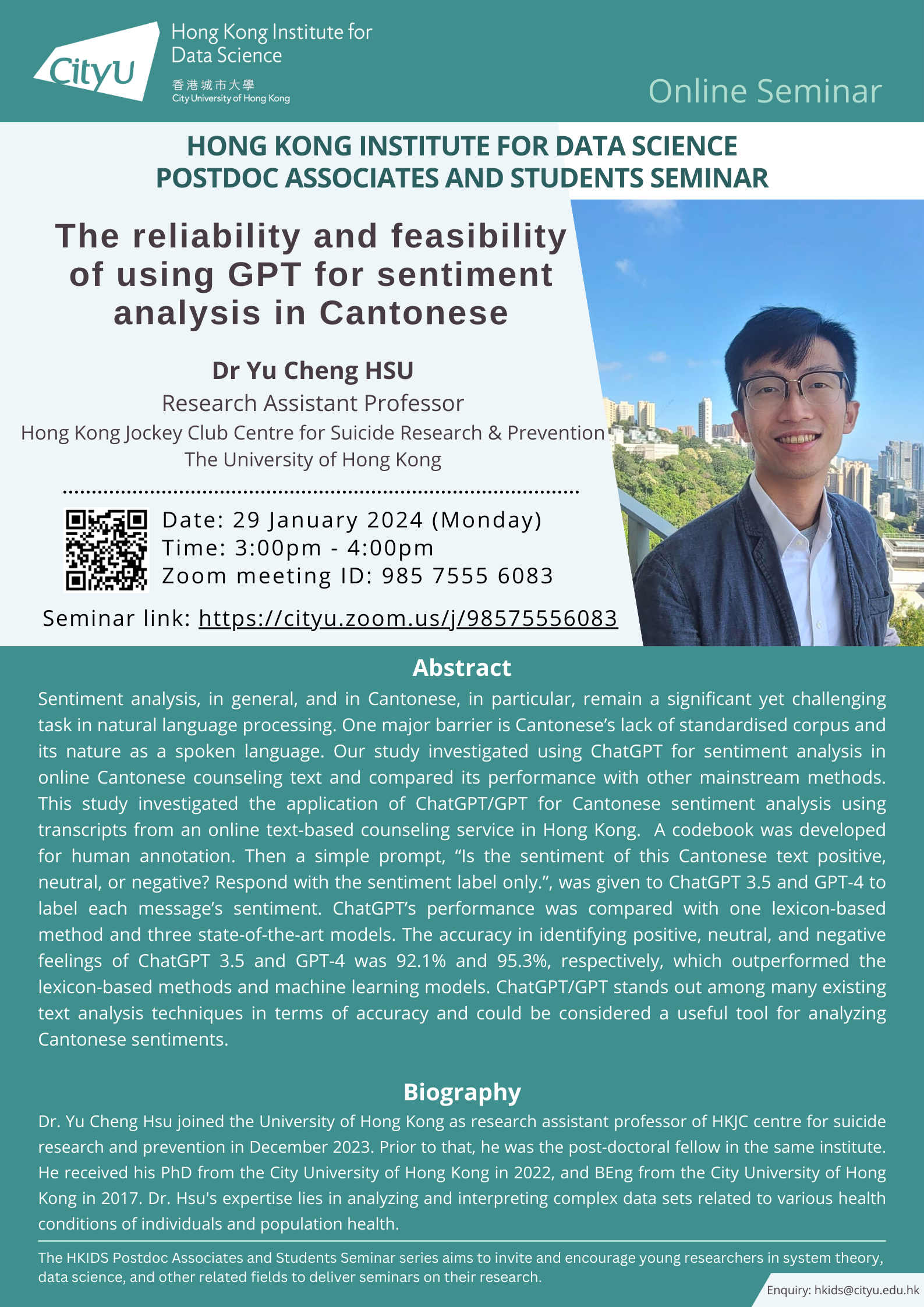
Sentiment analysis, in general, and in Cantonese, in particular, remain a significant yet challenging task in natural language processing. One major barrier is Cantonese’s lack of standardised corpus and its nature as a spoken language. Our study investigated using ChatGPT for sentiment analysis in online Cantonese counseling text and compared its performance with other mainstream methods. This study investigated the application of ChatGPT/GPT for Cantonese sentiment analysis using transcripts from an online text-based counseling service in Hong Kong. A codebook was developed for human annotation. Then a simple prompt, “Is the sentiment of this Cantonese text positive, neutral, or negative? Respond with the sentiment label only.”, was given to ChatGPT 3.5 and GPT-4 to label each message’s sentiment. ChatGPT’s performance was compared with one lexicon-based method and three state-of-the-art models. The accuracy in identifying positive, neutral, and negative feelings of ChatGPT 3.5 and GPT-4 was 92.1% and 95.3%, respectively, which outperformed the lexicon-based methods and machine learning models. ChatGPT/GPT stands out among many existing text analysis techniques in terms of accuracy and could be considered a useful tool for analyzing Cantonese sentiments.
Speaker: Dr Yu Cheng HSU
Date: 29 January 2024 (Mon)
Time: 3:00pm - 04:00pm
Poster: Click Here
Latest Seminars
Biography
Dr. Yu Cheng Hsu joined the University of Hong Kong as research assistant professor of HKJC centre for suicide research and prevention in December 2023. Prior to that, he was the post-doctoral fellow in the same institute. He received his PhD from the City University of Hong Kong in 2022, and BEng from the City University of Hong Kong in 2017. Dr. Hsu's expertise lies in analyzing and interpreting complex data sets related to various health conditions of individuals and population health.